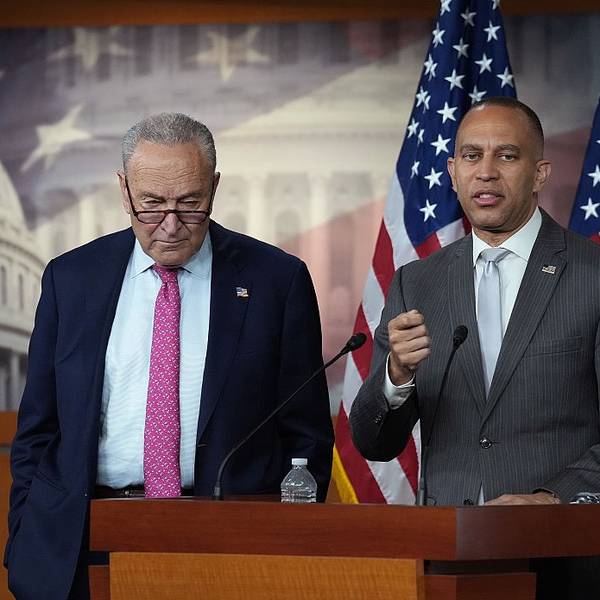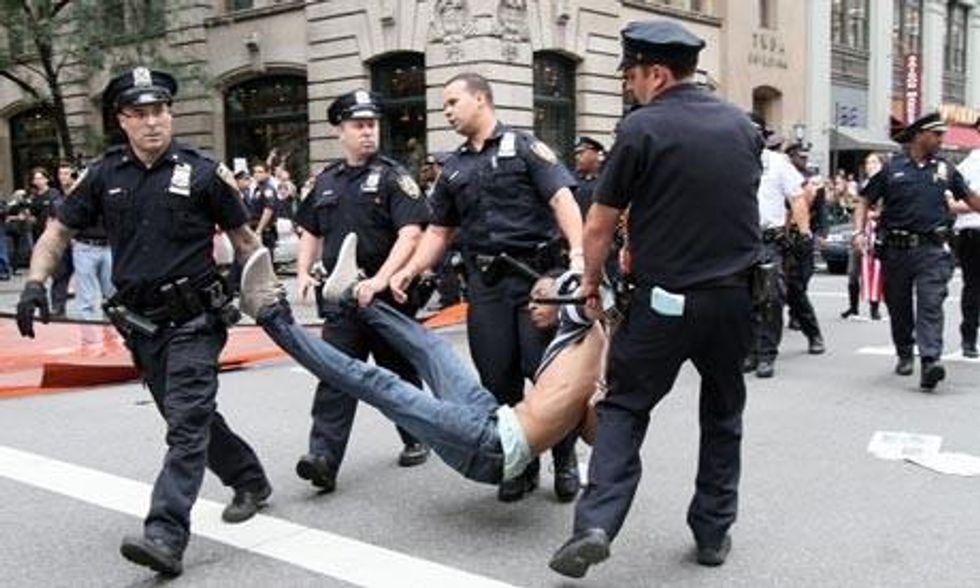One of the hardships of life as a reporter in New York City is that you so rarely get credited with the kind of heroism shown by colleagues in Helmand, say, or Baghdad. The assumption is that you're spending time drinking gin martinis on the roof of Soho House (I prefer vodka) or dining at the Grand Central oyster bar (try the Rhode Island Cuttyhunks, they're sumptuous), rather than dodging bullets in Tripoli.
I'd like to think that over the past few days perception of my job as a soft landing has started to change, and that its true nature as a tough, dangerous and - yes - heroic posting has begun to emerge. Take the events over the weekend in Wall Street. Admittedly, I wasn't there, but that's not the point. I could have been.
The protests were a lament for a nation in which, despite the 2008 meltdown, the financial system remains largely unregulated, where 46 million Americans live below the official poverty line, and where inequality is greater now than at any time since 1929. That's hardly the stuff of revolutions: you can read Paul Krugman make a similar point every week in the New York Times. And in the land of the first amendment you'd think it was OK to shout it out in the street, even if that street is Wall Street.
Not according to the two white-shirted senior NYPD officers captured on video. The film shows a small group of women protesters, who are doing nothing menacing at all, having been kettled by police. As they stand there fenced in and defenceless, the two white shirts walk up to them, hold out a pepper-spray canister and zap them straight in the face.
It's the officers' insouciance that is most shocking. They engage the pepper spray as calmly as if they were handing out parking tickets, then turn and just as calmly walk away.
The video reminded me of another recent event at which I was present: last week's execution in Georgia of Troy Davis. The case drew international attention because there was no forensic evidence and seven out of nine key witnesses had recanted their testimony.
But it was the incidental details outside the prison that caught my eye. An impassioned but entirely peaceful crowd of protesters had gathered to make the pretty reasonable argument that states should not go around killing innocent people. Georgia's response was to line up a Swat team in black riot gear like extras in a Batman movie and fly police helicopters with spotlights overhead. Add to that the balmy night and the loud buzzing of the crickets and it was like stepping back in time into a pastiche of the old Deep South.
It would be tempting to blame the extraordinary cruelty of that night on residual southern racism. But the most gruesome element of the proceedings had nothing to do with Georgia. Rather it came from the highest court in the land, the bastion of American justice, the US supreme court in Washington. It was the supreme court that kept Davis waiting for four full hours, not knowing whether he was about to live or die, and then announced the execution could go ahead. Calmly, insouciantly, just like those New York cops.
The combination of pepper spray, Swat teams and judicial torture - for that is what it was - underlined for me a strain of American life that is forever present but rarely makes itself so boldly visible as it has this week. You find it nostalgically glamorised in westerns and Coen brothers films - rough justice, primordial morality, the cold hard logic of the gun. It's a barely tamed brutality that sits oddly with America's claim to be the standard-bearer of civilisation in the world.
And it has been on ample display too at the pinnacle of American politics over the past few days, in the Republican presidential nomination debates. It's easy to mock these guys: the pizza man, the Mormons (two of them), the libertarian, the Tea Party darling, the executioner-in-chief ... But that would be to belittle what is happening here. This is, after all, the party of Abraham Lincoln, of Teddy Roosevelt and Dwight Eisenhower. Now look at it.
You know that something is rotten in the United States when you find yourself feeling sorry for Rick Perry. The governor of Texas, poor thing, is having a hard time at the hands of his rivals because he supports the idea of children being educated. Yes, you heard that right. Children being educated. They may be children of illegal immigrants, but so? We're talking kids here.
That's enough sympathy for Perry. The executioner-in-chief was introduced at a recent TV debate as having presided over 234 executions. The Republican audience cheered. When asked how he felt about such blood-lust, he said: "I think Americans understand justice."
In another debate, Ron Paul (the libertarian) was asked whether a man with a life-threatening illness but no health insurance should be allowed to die. "Yeah!" shouted the audience. Life is sacred, it seems, but only for the unborn.
Such harshness - barbarity, you might even say - is not an aberration or a joke to be shrugged off over a Budweiser in front of our TV screens. It is an integral part of the American public mind, as evident in Manhattan and Washington as it is in the Deep South. And the Republican party is embracing it with a vigour that should focus all our minds in the presidential election ahead.




